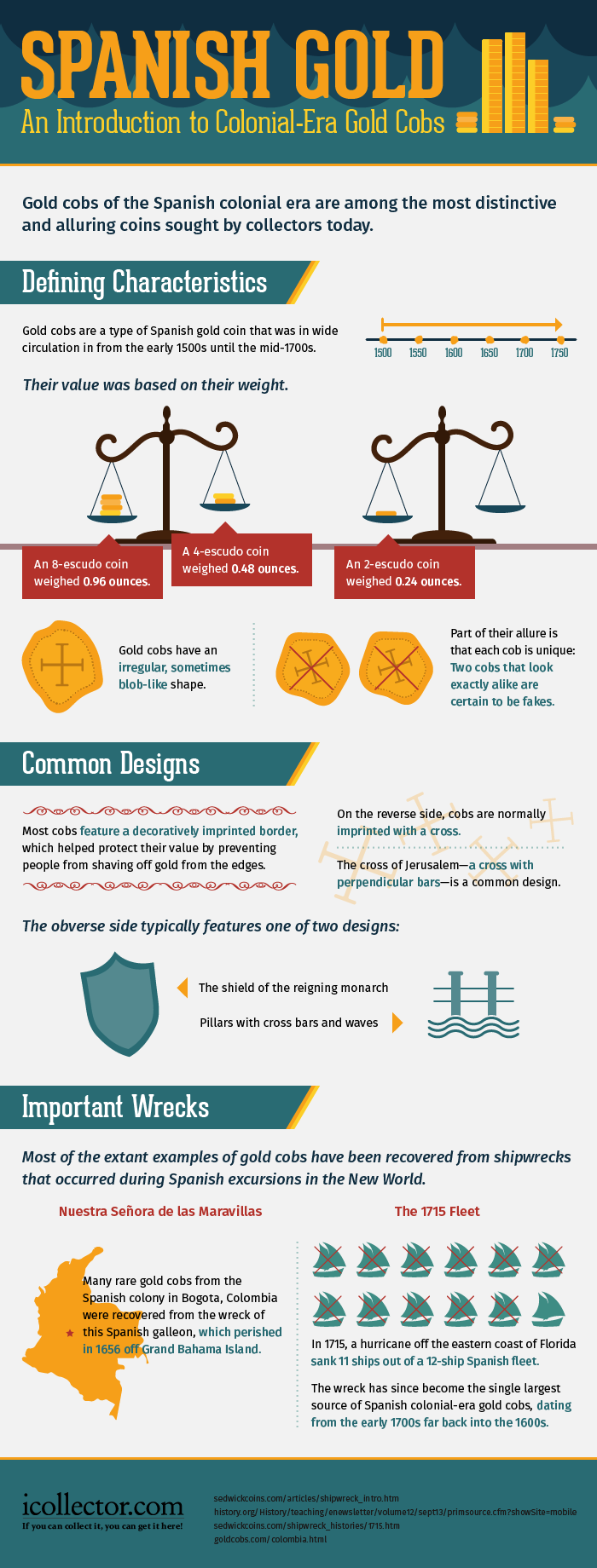Spanish gold coins conjure up images of pirates and buried treasure. Their connection with popular myths and legends has created a certain aura around the so-called cobs that makes them truly irresistible collectors' pieces. The majority of Spanish gold that turns up at auctions today comes from shipwrecks of overburdened treasure ships that sunk to the bottom of the Atlantic Ocean. The intriguing history of gold coins adds to their allure.
The gold escudos
Gold coins – or "escudos" – are some of the most valuable coins that remain from Spanish trade with the New World. The coins were made by hand from gold mined in the Spanish colonies of South and Central America. With them, the Spanish instituted a base-eight monetary system that would come to drive the international economy for centuries. A single gold coin was worth 16 silver "reales."
These escudos were made at several different mints spread across present-day Mexico, Peru, Argentina and Guatemala. They were made by taking mined gold and forming it into bars called ingots. These were then sliced into coins and weighed before being pressed with a hand-engraved design. The particular design varied between mints but often included a cross on one side and bars with waves on the obverse. Alternatively, the obverse was at times struck with an image of the reigning monarch's crest.
Sunken treasure
There are a couple notable shipwrecks whose discovery in the late 20th century led to the widespread circulation of Spanish gold coins. In 1656, the Nuestra Senora de las Maravillas went down off the coast of Grand Bahama Island. The ship was part of a Spanish Fleet returning home with over 5 million pesos worth of treasure. After unexpectedly running into shallow waters, the Maravillas was rammed by another ship in the fleet, forcing the captain to attempt to ground the vessel on a nearby reef. Unfortunately, many of the 650 crew members perished in the ensuing chaos. While some of the original treasure was salvaged at the time of the wreck, much of it wasn't recovered until the early 1970s and late 1990s.
A huge storm off the coast of Florida in 1715 resulted in the wreckage of 11 ships. The fleet was meant to return to Spain to deliver its cargo of coins, gemstones and other exotic products of the New World. Unfortunately, an unexpected hurricane demolished the fleet and sent it to the ocean floor. The site of the wreck has become a literal gold mine for treasure hunters seeking out rare gold escudos.
Head over to iCollector for a listing of spanish gold auctions happening around the world.

